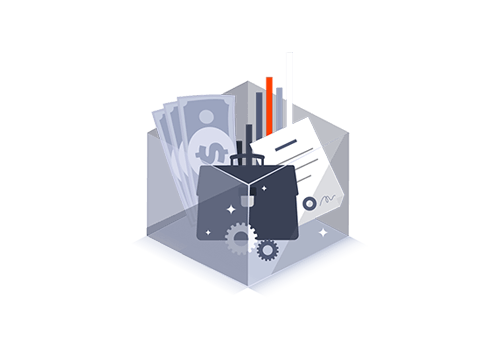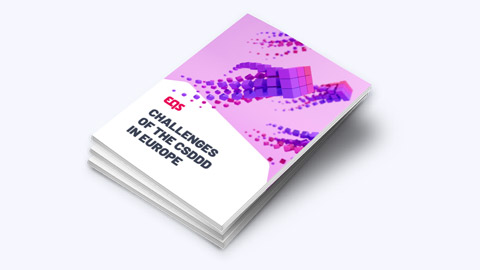Top 10: The Best Books About Compliance
Keen on reading an exciting book and enhancing your knowledge of compliance at the same time? Here are ten best titles centered around morals and ethics.

Do you want to relax on the sofa with a good book and broaden your horizons at the same time? That’s no problem with our list of reading tips. The following ten titles are a source of entertainment, suspense and knowledge at the same time.
1. Intentional Integrity: How Smart Companies Can Lead an Ethical Revolution (Robert Chestnut)
“Raise your hands: who here has integrity?” This is the direct and somewhat uncomfortable manner in which Robert Chestnut addresses his employees. The Silicon Valley expert’s message is clear: without the essential element of corporate culture – integrity – today’s companies are doomed to fail. The digital world and its transparency leaves nothing unobserved and does not forgive moral missteps – that is his creed. Having worked for years at companies like eBay and Airbnb as well as at the US Department of Defence, he knows what he is talking about. Chestnut gives managers a six-point plan on how to make integrity an indispensable part of their company and it is a must read for everyone interested in compliance.
2. It’s Our Turn to Eat: The Story of a Kenyan Whistleblower (Michela Wrong)
This is a biography that reads more like a political thriller and it tells the story of John Githongo who became known as the “anti-corruption tsar”. For two years, he did everything he could to put an end to bribery in Kenya under President Mwai Kikabi. His efforts were in vain and, fearing for his life, he fled to London in 2005, ringing the doorbell of journalist Michela Wrong, his biographer. She turned his life story and memories into a gripping book rivalling a John le Carré novel in suspense, the key difference being that this story is not fictional.
3. Moneyland: Why Thieves and Crooks Now Rule the World and How To Take It Back (Oliver Bullough)
What’s wrong with a world of globalisation? As it turns out, plenty. In “Moneyland”, investigative journalist Oliver Bullough explores the dark side of globalisation, shedding light on the extent of corruption, theft and drug trafficking. Expertly, he describes how the frightening model of money laundering and tax evasion functions through well-researched and comprehensive arguments. Using countless examples, he highlights imbalance in a borderless economic world where money disappears without much hope that it will ever resurface. It isn’t too late to change the situation, however, and the book also explains how heroic activists across the world are fighting back.
4. The Big Five for Life (John P. Strelecky)
Joe isn’t happy in his job. When he meets Thomas, an optimistic and successful businessman, everything changes. He shows him how he can easily follow his destiny – he just has to know his five most important goals in life and of course follow them. Joe takes the advice onboard, finds his dream job and happiness in life. When his mentor is dying, he helps him fulfil his final wish. Thomas wants to pass on his secret of success and it’s written down in John Stelecky’s “Big Five for Life”. The author of the bestseller “The Cafe on the Edge of the World” shows a path that is often difficult to follow today: working to live and not living to work.
5. The Simpsons and Philosophy (William Irwin, Mark T. Conard, Aeon J. Skoble)
If you ever doubted that there was a deeper meaning behind the TV series “The Simpsons”, this book from 11 philosophers will prove you wrong. Quotations from Homer Simpson and Aristotle are compared, the moral world of The Simpsons is viewed from a Kantian perspective and Marxism is sought out in Springfield. Along the way, the reader receives an introduction to the basics of philosophy. Conclusion: this book is not only for Simpsons fans. If you also have a weakness for philosophy, this challenging read is highly recommendable.
6. The Honest Truth About Dishonesty: How We Lie to Everyone (Dan Ariely)
As author Dan Ariely points out in his book, we all have a penchant for telling fibs and having a sense in community plays a role in it. If big corporations evade taxes and cheat insurance companies, then why can’t the little guy do the same? Psychologist and business economist Ariely draws on his own experiences as well as examples from politics and business in order to debunk patterns of honesty and dishonesty. Admittedly, not all the theories are new and many might seem familiar for those who have read some of his earlier books (e.g. Predictably Irrational: The Hidden Forces That Shape Our Decisions). It remains excitingly written and entertaining nonetheless.
7. The Shadow World: Inside the Global Arms Trade (Andrew Feinstein)
In “The Shadow World”, Andrew Feinstein courageously takes us behind the scenes of the international arms trade through the presentation of impressive evidence. He uses forensic detective work to examine official deals between state governments as well as illegal business. He makes the connections between the two worlds visible, among other things, including pictures of the people involved. The 600 or so pages are shocking and they make us aware of the danger this invisible network holds for all of us.
8. Billion Dollar Whale: The Man Who Fooled Wall Street, Hollywood and the World (Tom Wright and Bradley Hope)
Immeasurable luxury: a superyacht and parties with film and fashion stars. This is as much a part of Malaysian investor Low Taek Jho’s biography as suspicions of embezzlement and money laundering. It is all woven into an incredible life story in “Billion Dollar Whale”. At the centre of the book is the question of whether he really drew billions from a state fund that he himself had built up in his home country. It also details how he was able to cheat his way through the economic, social and political systems – both fascinating and frightening at the same time.
9. Extreme Economies: What Life at the World’s Margins Can Teach Us about Our Own Future (Richard Davies)
You don’t always have to look into a crystal ball to predict the future. To forecast the development of the world economy, journalist and economist Richard Davies simply relies on existing systems. What his nine examples have in common is that they function according to their own rules despite extreme conditions. From a monetary system in rural Rwandan prisons and a Japanese prefecture with the oldest population to the world’s first digital state, the book provides insights into how future economies can survive.
10. The Art of Fairness: The Power of Decency in a World Turned Mean (David Bodanis)
Can success be achieved without using your elbows and being ruthless? Yes says David Bodanis in “The Art of Fairness” and he explains why through the use of many historical case studies. For example, fairness and ability led to the Empire State Building’s completion in barely a year. Ten professional profiles such as pilots and presidents show that fairness and decency go a long way. The book also shows how teams can be led in a decent way regardless of size, format and type. It is an all-encompassing guide that encourages us to succeed without selling our souls.

Key principles of establishing an effective ABC programme



